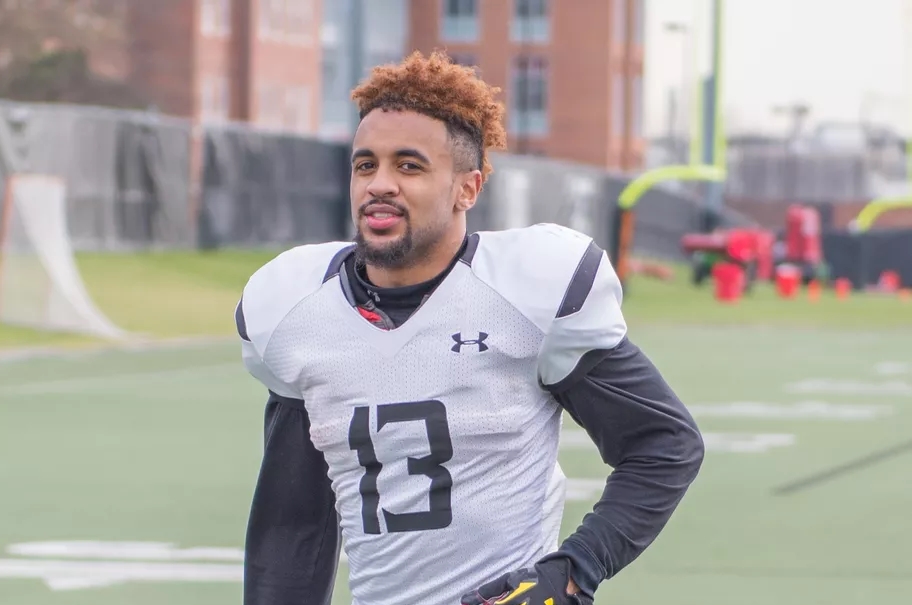News
Former college football player explains how staff pushed him to return prematurely after a concussion

Source: Alexander Jonesi
Between several studies, stories from the locker room, and what we witness every week in football, it is obvious that many concussed athletes wind up going back onto the field prematurely after injuries – especially concussions.
Typically, we blame the athletes. People suggest that they are “too macho” or that they “don’t want to let the team down.”
While that may often be true, it is important to remember that the coaching staff and team administration can be just as guilty of pushing a player to start playing again before they are fully healed from a brain injury.
This is the case for one former wide receiver who says a recently disgraced head trainer pressured him to “return quickly” from a concussion in the 2016 season.
In an interview with 247Sports, former Maryland player DeAndre Lane detailed how head trainer Wes Robinson consistently forced the player to push through serious injuries.
“It was Wes more than anybody,” Lane said. “He would constantly say I was lying about having headaches, like two days out from having a concussion. I felt like I was the only one who cared about my brain. He was like, you’re just scared to play. I was like, I don’t want to come back early and get another one, because I had already had one earlier in my career.”
Suffering a concussion in the period shortly after a first brain injury carries several severe health risks. Repeated trauma can later develop into chronic traumatic encephalopathy (CTE) – a permanent brain disease. Additionally, a second brain injury shortly after a first concussion significantly increases the risk of “second-impact syndrome” which can be fatal.
Earlier this month, Robinson was placed on administrative leave after ESPN uncovered what it called a “toxic” culture in the football program of the University of Maryland. The report was the result of a journalistic investigation into the situation that may have contributed to the death of freshman football player Jordan McNair after a practice in May.
Lane’s story highlights how important it is for members of athletics programs at all levels to understand and prioritize the health of players over wins and losses on the field. When authority figures push athletes to ignore their concussions, they are risking athletes’ lives.



